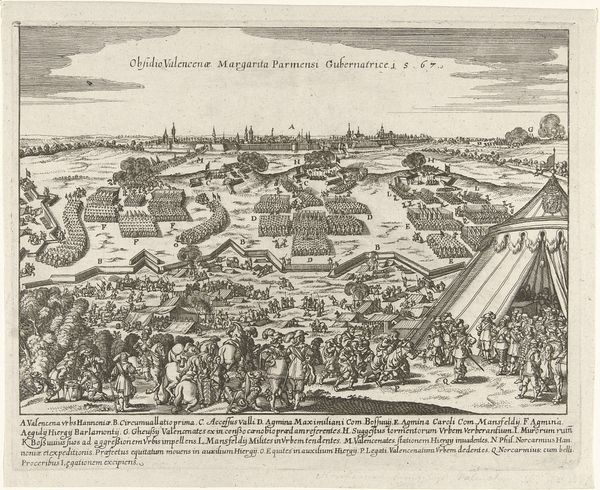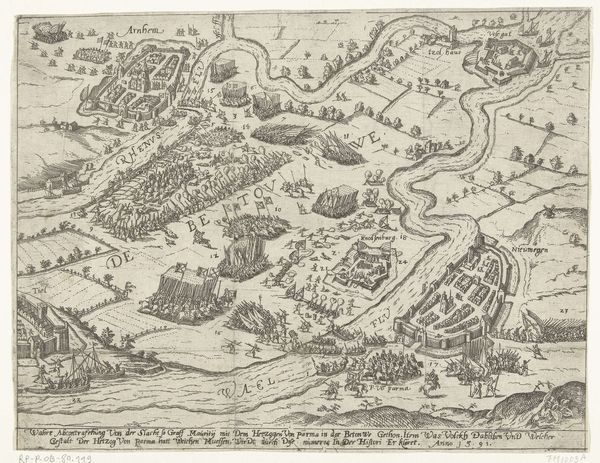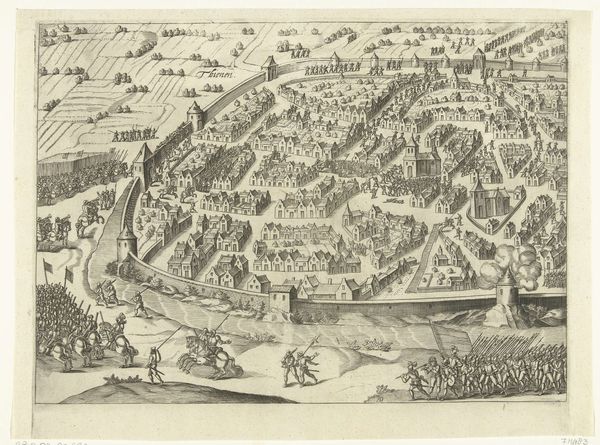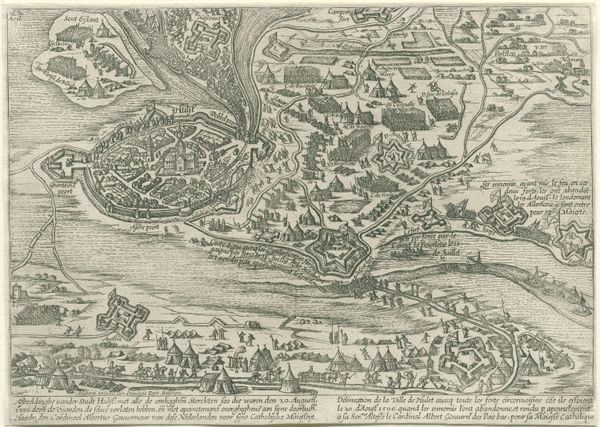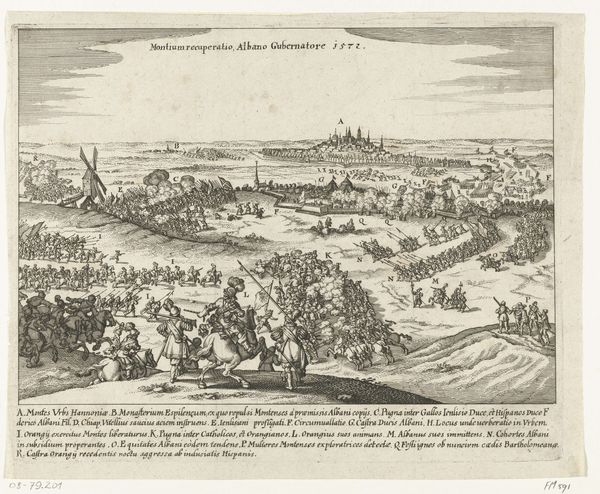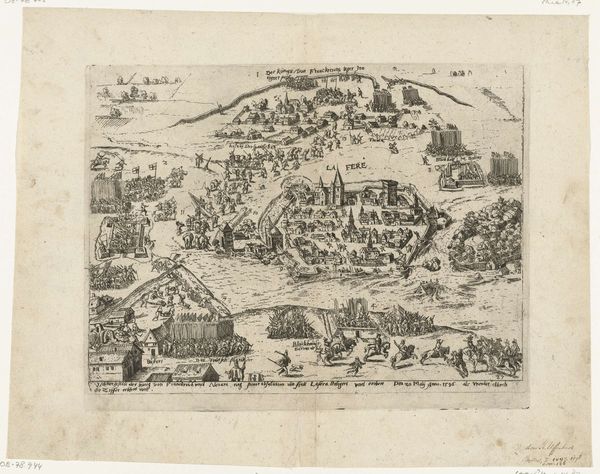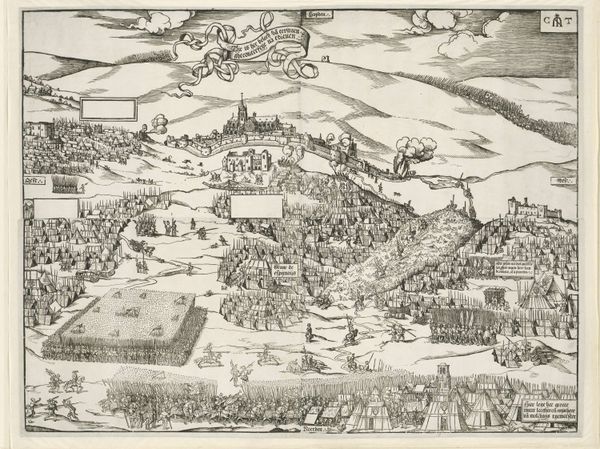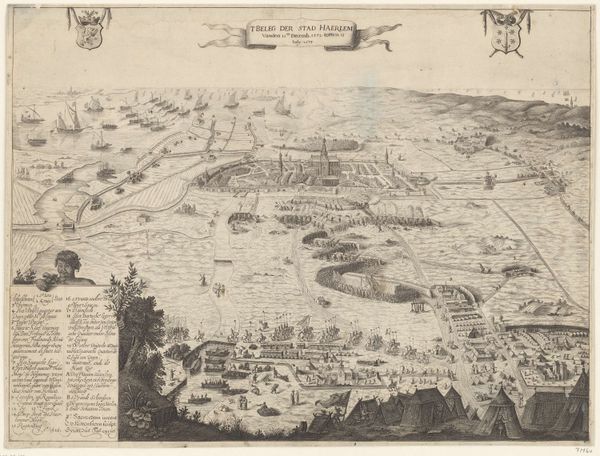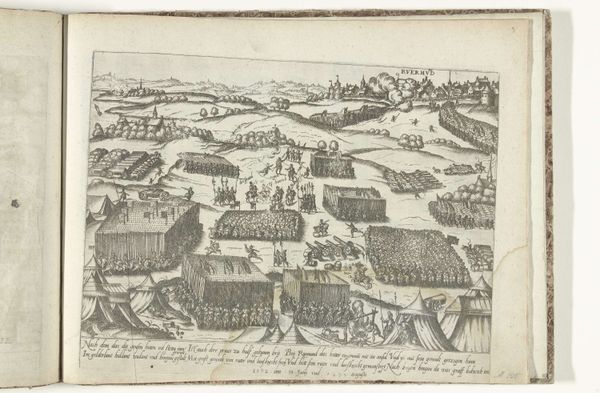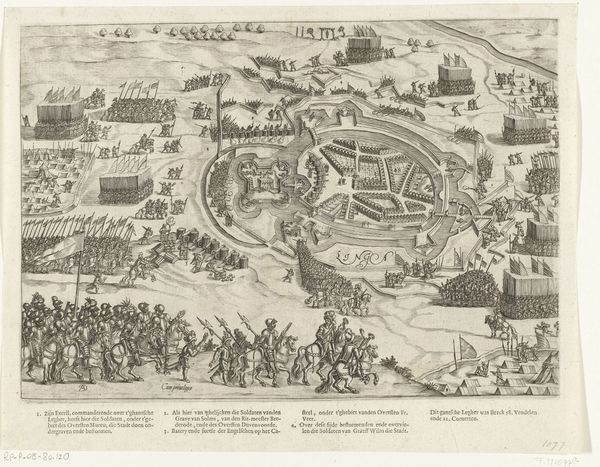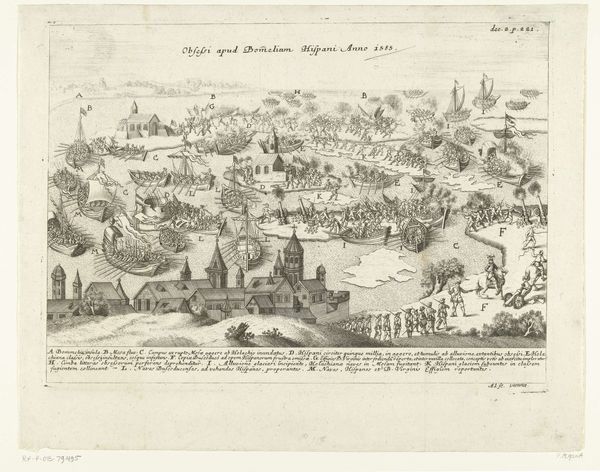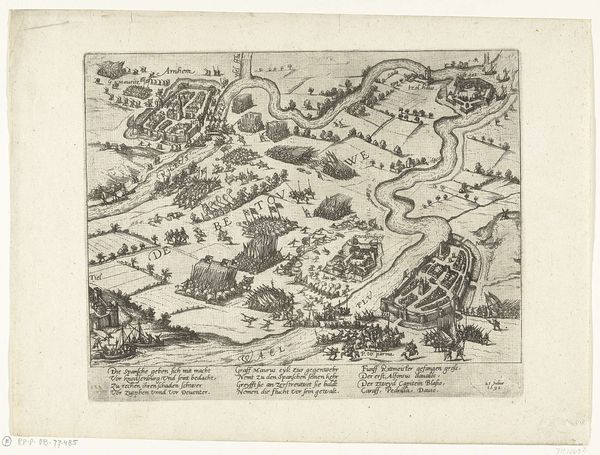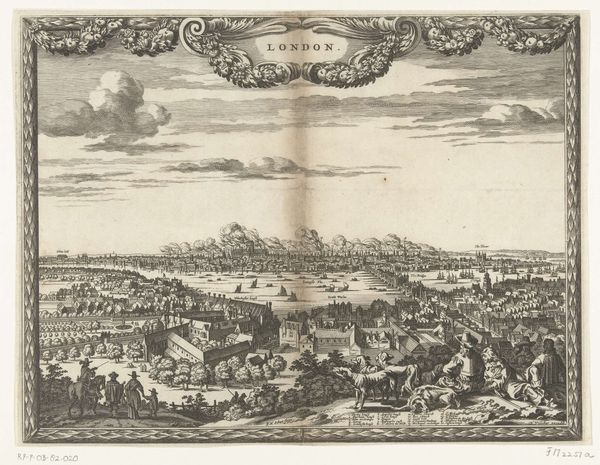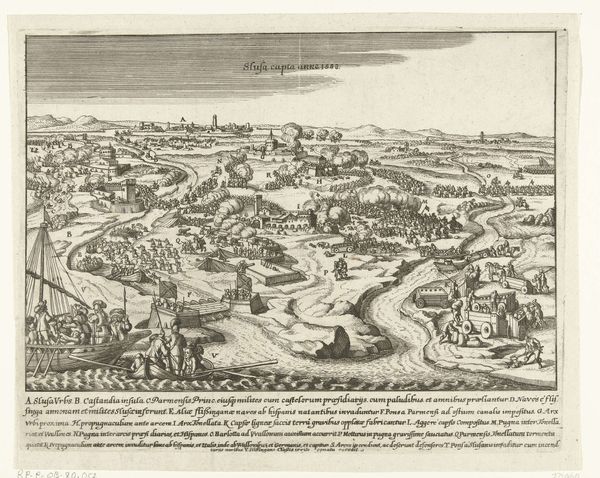
De Spanjaarden uit de Bommelerwaard verdreven door het doorsteken van de dijken, 1585 1649 - 1651
0:00
0:00
print, engraving
#
narrative-art
#
baroque
#
dutch-golden-age
# print
#
pen sketch
#
old engraving style
#
landscape
#
figuration
#
form
#
line
#
cityscape
#
history-painting
#
engraving
#
realism
Dimensions: height 210 mm, width 278 mm
Copyright: Rijks Museum: Open Domain
Curator: Let’s have a look at this detailed print, “De Spanjaarden uit de Bommelerwaard verdreven door het doorsteken van de dijken, 1585,” dating from 1649-1651, artist unknown. It illustrates the Spanish expulsion from Bommelerwaard, achieved by flooding the dykes. Editor: Whoa, it's like a tiny explosion of narrative! So much detail crammed in. The chaos, the frantic energy... It gives me a touch of the 'pirates of the Caribbean' vibe, with ships everywhere and impending doom. Curator: Yes, and the engraving really highlights the labor involved in warfare at that time. We see the figures, small but rendered with great care, their efforts defining the landscape, quite literally reshaping it through the breach of the dykes. Note the impact on infrastructures of control in place, like roads, walls and fences. Editor: I'm really drawn to the way the water dominates. It’s not just a background; it’s the main character. And those little ships! Someone clearly had a thing for rendering boats in all their glory. Almost feels…loving? Curator: I agree. There's a distinct aesthetic decision that directs our understanding of waterways during wartime, especially when the prints circulated amongst various groups of the Dutch population. Considering that these images aimed to shape and inform contemporary opinion, the means by which the artists created those landscapes matters. The linear detail directs us towards an understanding of what we think are supposed to understand from such prints, creating awareness for its viewers of Dutch pride. Editor: I feel that the scale works magically with my sense of wonder, the kind I had watching toy ships crash as a child. So this really strikes a personal chord. Maybe it connects to that innate human desire to control our world, to play God a little by breaching walls. Curator: Perhaps... And in art historical terms, we are witnessing an instance where human production intervened in the land, where the land then affected further social conditions for those that once colonized and attempted to colonize land. Editor: Yes! So, for me, this piece makes me think about individual struggle set against larger movements in both nature and politics. The intense precision captures humanity's knack for finding power in turmoil and change. What about you? Curator: It leaves me pondering on the means by which historical moments get captured through this age old medium. These engravings reveal how printmaking functioned in its material specificity and wider distribution as a visual apparatus.
Comments
No comments
Be the first to comment and join the conversation on the ultimate creative platform.
